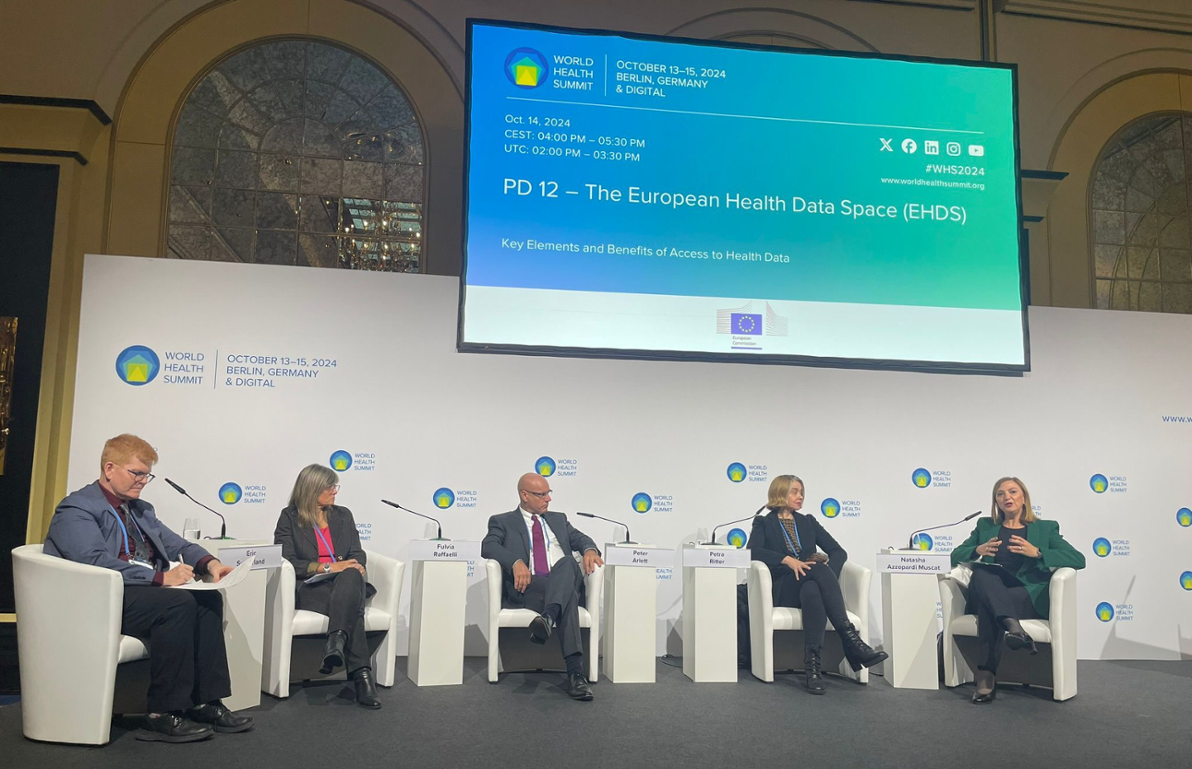The World Health Summit 2024, held from October 13 to 15 in Berlin and organized by Charité – Universitätsmedizin Berlin, brought together leaders, innovators, and visionaries in global health to discuss pressing challenges and explore transformative solutions. Read our previous blog post about the event for more details.
Among the highlights of this year’s event was the panel discussion on the European Health Data Space (EHDS) — an ambitious initiative aimed at transforming health data access and sharing across Europe. Prof. Petra Ritter was among the notable speakers, offering her perspective during the discussion. The session shed light on the potential of the EHDS to empower patients, advance research, and foster innovation in healthcare.
Key Takeaways from the Panel Discussion
The panel discussion, PD12: The European Health Data Space (EHDS): Key Elements and Benefits of Access to Health Data, was hosted by the European Commission and featured leading experts from various sectors, including Prof. Ritter. This session provided valuable insights into the EHDS’s vision, challenges, and anticipated impact. Here are the key takeaways:
Data Sharing and Interoperability
Panelists highlighted the EHDS's commitment to creating a seamless ecosystem for health data sharing across Europe. By prioritizing interoperability and patient-centered data control, the initiative promises to streamline healthcare delivery, support evidence-based decision-making, and drive collaborative research.
Frameworks and Collaboration
Panelists emphasized that the success of the EHDS hinges on robust governance and regulatory frameworks. Collaborative efforts among stakeholders are crucial to ensure that the system balances accessibility with stringent data privacy and security measures.
Empowering Patients Through Data Access
A key goal of the EHDS is to empower patients by granting them control over their health data. This access enables individuals to make informed choices about their care and actively engage in their healthcare journey.
Overcoming Barriers to Implementation
The panel addressed significant implementation challenges, such as differing healthcare systems, regulatory disparities among member states, and integrating public and private health data. Overcoming these barriers demands sustained commitment and coordinated efforts from all stakeholders.
Driving Research and Innovation
By providing researchers with secure and streamlined access to anonymized health data, the EHDS is poised to accelerate scientific discovery and foster innovation. This could lead to the development of better treatments, improved healthcare policies, and more equitable health outcomes across Europe.
Future Directions
The panel emphasized the need for continued investment in digital infrastructure, comprehensive data governance, and active engagement with healthcare providers and patients. These efforts are essential to realize the full potential of the EHDS and ensure its long-term success.
Replay the Discussion
If you missed this insightful panel discussion, the full session is available for replay online.
Looking Ahead
The European Health Data Space represents a bold step toward a more connected and patient-centered healthcare ecosystem. By fostering collaboration, innovation, and trust, it has the potential to redefine how health data is accessed and utilized, benefiting patients, researchers, and healthcare providers alike.
